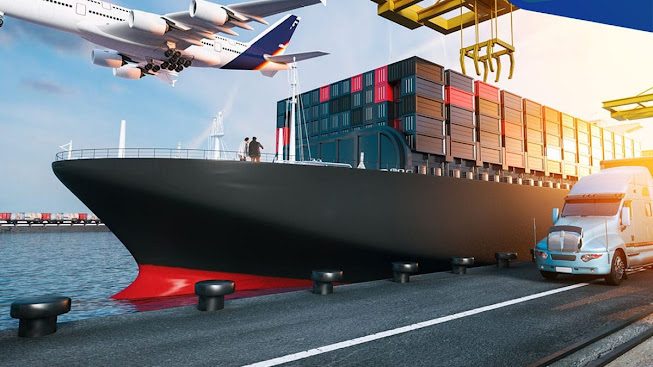Cargo Insurance Trends: On-demand Coverage
The world of cargo insurance is undergoing a significant transformation, driven by the need for more flexible and adaptable coverage in an ever-evolving global market. Traditional cargo insurance models have often been rigid and slow to respond to changing needs. However, the emergence of on-demand cargo insurance is revolutionizing the industry, offering businesses unprecedented flexibility, cost-efficiency, and peace of mind. In this blog post, we will explore the latest trend in cargo insurance: on-demand coverage, and how it is reshaping the landscape for cargo owners and logistics companies.
 |
| Cargo Insurance Trends: On-demand Coverage |
For decades, cargo insurance has been a staple in global trade, providing protection against various risks, including damage, theft, and loss during transit. While these traditional insurance policies have played a crucial role in mitigating risks, they often come with limitations, such as inflexible terms, high premiums, and lengthy claims processes.
The Rise of On-Demand Cargo Insurance
On-demand cargo insurance, also known as "pay-as-you-go" or "per-shipment" insurance, represents a departure from traditional models. This innovative approach allows cargo owners and logistics companies to purchase insurance coverage only when needed, for specific shipments, and tailored to their unique requirements. Here's how it works:
- Flexibility: With on-demand coverage, businesses can secure insurance for individual shipments, specific routes, or periods, providing maximum flexibility to adapt to changing circumstances.
- Cost-Efficiency: Traditional cargo insurance policies often involve substantial upfront premiums. On-demand insurance allows businesses to pay only for the coverage they use, potentially reducing insurance costs.
- Streamlined Claims: On-demand platforms often feature simplified claims processes, leveraging digital technology to expedite claim submissions and approvals.
Advantages of On-Demand Cargo Insurance
- Cost Savings: Businesses can optimize insurance costs by tailoring coverage to their actual needs, avoiding unnecessary expenses.
- Risk Mitigation: On-demand coverage enables cargo owners to proactively manage risk for specific shipments, enhancing cargo security and reducing financial exposure.
- Ease of Use: Digital platforms for on-demand insurance offer user-friendly interfaces for policy creation, management, and claims submission.
Real-World Applications
- E-commerce: On-demand cargo insurance is particularly valuable for e-commerce businesses that frequently ship high-value goods, offering protection for specific deliveries.
- High-Value Cargo: Companies transporting valuable or time-sensitive cargo can benefit from flexible coverage for critical shipments.
- Global Logistics Providers: Logistics companies can offer on-demand insurance as an added value to their customers, providing customizable solutions for cargo protection.
Challenges and Considerations
- Education: Widespread adoption of on-demand insurance may require educating businesses about its benefits and how it differs from traditional policies.
- Data Security: Ensuring the security of sensitive cargo and insurance data in digital platforms is essential.
- Regulatory Compliance: On-demand insurance providers must adhere to insurance regulations and requirements in various jurisdictions.
Conclusion
On-demand cargo insurance is transforming the way businesses protect their goods during transit. This innovative approach offers unparalleled flexibility, cost-efficiency, and risk mitigation, making it an attractive option for cargo owners, logistics companies, and insurers alike.
As the global supply chain continues to evolve and adapt to changing market dynamics, on-demand cargo insurance provides a responsive and adaptable solution for businesses seeking to protect their valuable cargo while managing insurance costs effectively. This trend represents a significant step forward in the cargo insurance industry, aligning coverage more closely with the dynamic needs of modern commerce.



Comments
Post a Comment